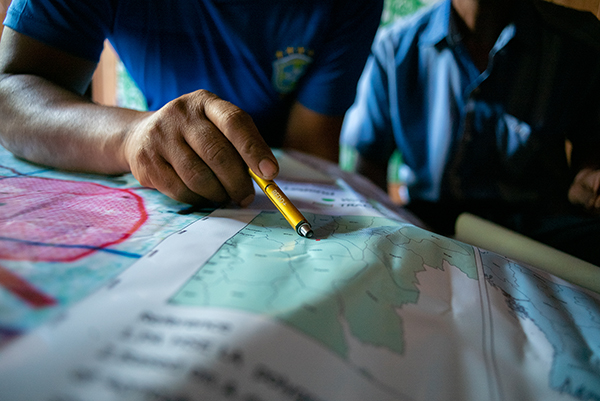This article was published more than 5 years ago.
This article is part of a series featuring inspiring stories of local action #fromthefrontlines of COVID-19 in the Global South. For more, visit our COVID-19 page and follow us on Facebook and Twitter.
When borders closed, business shuttered, and entire nations locked down to curb the spread of the novel coronavirus, no one knew what its impact on human rights work would be. But thanks to the grit, courage, and sheer resilience of community activists and local leaders across the globe, the fight for human rights continues—and, in some countries, long-embattled human rights defenders are even turning this challenging moment into a renaissance for civic organizing.
According to an informal survey of Fund-supported organizations, taken in late April and early May, 51 percent of respondents pivoted overnight to launch new initiatives tailored to meet the moment head-on.
- In the Philippines, the Convergence of Initiatives for Environmental Justice, Inc., or CIEJ, mobilized dressmaker from rural communities to help make masks and protective gowns for frontline health workers.
- Tunisian LGBTQ advocates Mawjoudin, forced to cancel their landmark LGBTQ film festival, instead launched a new comic book called Queer Squad that explores LGBTQ lives in lockdown. The first installment is available for free online.

63 percent of survey respondents said they were monitoring government responses to the pandemic and documenting the impact of COVID-19.
- Activists in Nigeria, led by Fund grantee Spaces for Change, launched a country-wide effort to monitor, document, and analyze the government’s response to COVID-19. When the government tried to fast-track a draconian disease control bill without discussion, they successfully demanded a public hearing.
- Hundreds of Kenyans, corralled into mandatory quarantine, were forced by the central government to pay all the expenses they incurred, including food and accommodation. After Muslims for Human Rights helped mobilize a public outcry against the controversial practice, the Kenyan government backed down.
47 percent of the survey respondents reported that curfews and containment measures have been used to target and detain activists. In response, activists have shown how powerful solidarity can be in times of crisis.
- Honduran police abused their pandemic powers to arrest several prominent activists, including Aleyda Huete and Evelyn Castillo. When Huete was arrested on dubious charges in her home in southern Honduras, local human rights groups mobilized quickly to petition the advisory council of the national Mechanism for the Protection of Human Rights Defenders and Journalists and successfully secure her release on bail.
In fact, more than 70 percent of survey respondents said they were engaging with other groups on similar issues to form partnerships.
- In Myanmar, the Karen Women’s Organization (KWO), a 60,000-strong membership group for Karen women and girls, is demanding an immediate end to the Myanmar military’s unchecked aggression in minority areas as part of the Karen Peace Support Network. Even as they’re delivering critical aid to Karen refugee camps, the women of KWO are playing a leading role in the campaign for peace.
- In the Indian state of Assam, three organizations supported by the Fund—All Adivasi Women Association of Assam, Nazdeek, and Pajhra—have joined forces to assist tea plantation workers who have been excluded from government protections.
And nearly 90 percent of survey respondents reported they were still carrying out aspects of their core work, as well.
- Despite travel restrictions and stay-at-home orders forcing their work online, Fund-backed Caminando Fronteras has leveraged their powerful network of allies to provide life-saving support like healthcare, masks, and clean water to migrants on either side of Mediterranean.
- In Honduras, the activists of OFRANEH, a social movement of the Afro-Indigenous Garifuna people, moved swiftly to coordinate a public health response in their communities. But they continue to address the systemic inequalities that have made the Garifuna, and other Honduran minorities, so vulnerable to crises like COVID-19.
COVID-19 has had a tremendous impact on our local partners, many of whom are facing even greater challenges than when we first conducted the survey in May—and it’s changed the way we work at the Fund, as well. But through it all, human rights defenders have responded with incredible resilience, pivoting overnight to best serve the needs of their communities. The Fund strives to support them with the sustained, flexible support they need to weather this storm and, in its aftermath, rebuild a better, fairer world.


